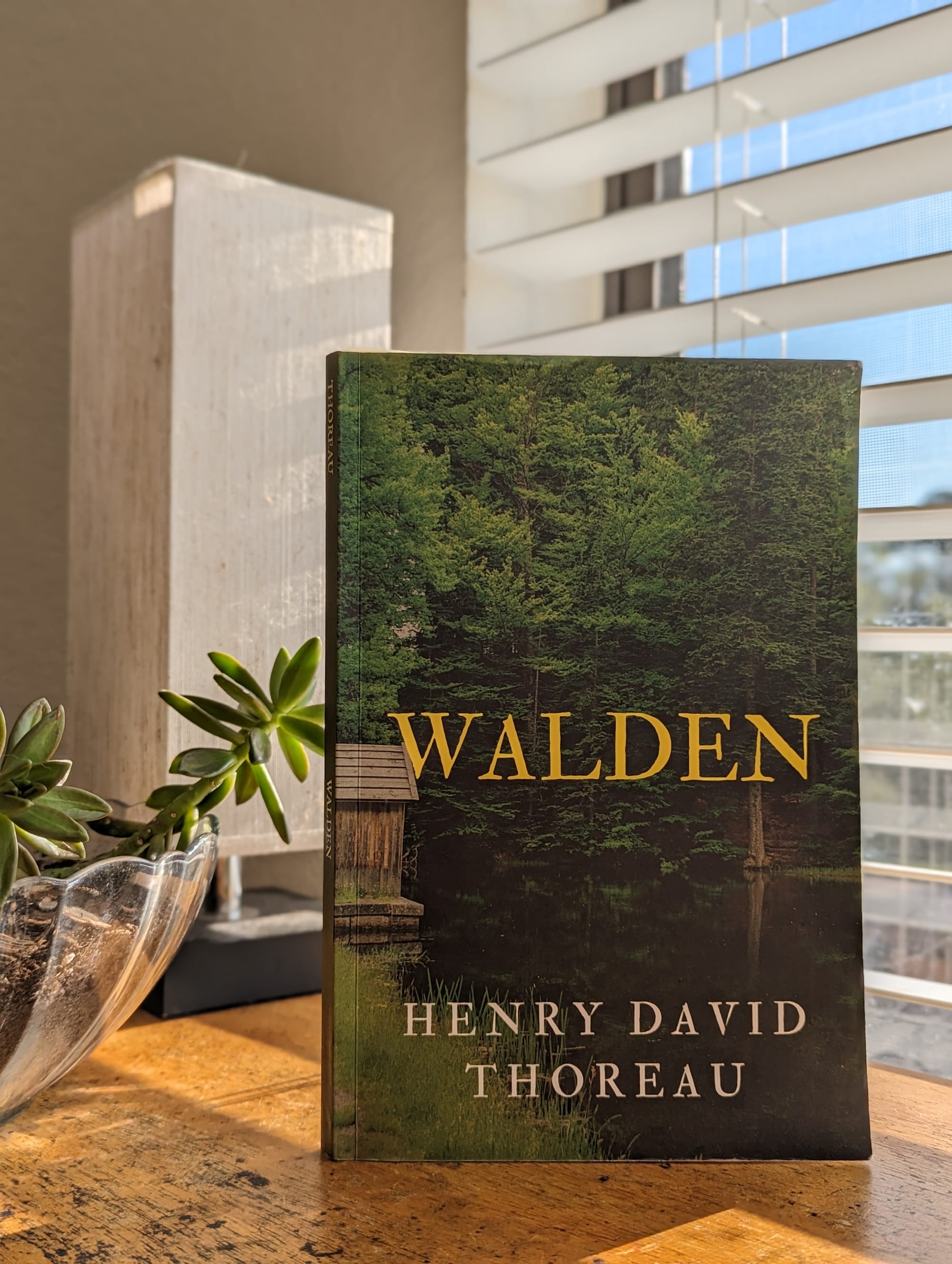Book Review: Walden

To start things off frankly, Thoreau wrote “ I went to the woods because I wished to live deliberately, to front only the essential facts of life, and see if I could not learn what it had to teach, and not, when I came to die, discover that I had not lived.” Such a profound and clear statement fully encapsulates the message that is within this work. A search for meaning deeper than anything our society has the capability of conjuring, a philosophical exploration into how one can create a sense of fulfillment and value from a life of simplicity.
Walden is a series of essays compiled over the timeframe that Henry David Thoreau spent living in moderate isolationism over a period of two years, 2 months and 2 days. He went to a remote property in Massachusetts called Walden pond, in which built a small cabin and a garden. Detailing his encounters, thoughts and new perspectives gained from the sudden change of environment. With this new lifestyle it allowed a fresh view to be made on what matters most, patterns and principles of nature and how humans are not much further from it, despite our hopes not to be.
Our author tells a message on how complexity is not directly corresponding to richness, that we may find it wherever we are and do not have to fill our lives with activity to feel accomplished. What many take as the direct message is that nature and solitude are the keys to happiness. One must surround themself with the most amount of life possible, to lose themselves in the world around them. While not entirely wrong, Thoreau speaks more on how a life of deliberate actions and choice is most important. No busy schedule, large mansions, crazy adventures or new objects will ever create the sense of fulfillment we all desire, if that isn’t what we really wanted in the first place.
Success is no definite spot, and our misjudgments of that fact can lead to devastating realizations. Yet one that can simply hold true to their beliefs and follow whatever goal that is, be it simple or ever growing complexity. If one wishes to truly live a life of solitude in nature, and they begin to live that life, losing oneself will become a strange thought, wanting for more will become foreign. Walden explains how there is an angle of new observation in everything. From the dramas of local squirrels and birds preparing for winter, or the dynamic relationship between the pond and its inhabitants. Even the warring of ants has a parallel that can be drawn on human society. As long as you are purposeful in your direction and intent, everything that lay in the path before you can be of benefit.
